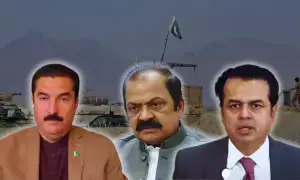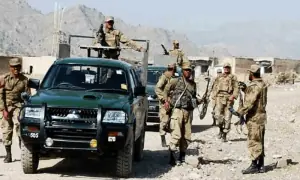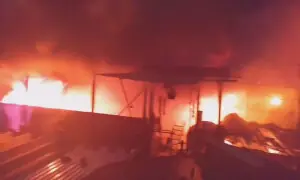How Pakistan’s elections were once delayed at the 11th hour
3 min readPakistan survived one of its most tumultuous years in 2007 only to find out that the new year would bring a surprise immeidately: elections that had been announced after massive upheavels were set to be delayed.
On January 2, 2008, with only six days to go in the elections, the Election Commission of Pakistan said that the atmosphere in the country was simply not conducive for elections. The date was pushed 40 days ahead to February 18.
But first a quick a recap of what the country had seen in 2007. Then President General Pervez Musharraf tried to depose a chief justice who was later restored by the Supreme Court.
His government also ordered a massive operation in Lal Masjid, where over 100 were killed.
Nawaz Sharif tried to return to the country but was deported, only to stage another return in November. Benazir Bhutto also returned after graft cases against her were dropped, only to meet a suicide bombing at her welcome rally.
As the Supreme Court met to decide if Musharraf could be president while remaining army chief, the president imposed emergency rule. It was during this period that he handed over the army command to Ashfaq Kiyani and was elected as civilian leader.
It was during the emergency period that Musharraf announced that elections would be held in January. He also appointed the Senate chairman, a member of the king’s party, as the caretaker prime minister. Come January, however, there were more problems afoot.
The year of upheavels ended with the biggest of them all, the death of Benazir Bhutto, and violence flared across Pakistan. Bhutto, who had been addressing large rallies across Pakistan, had been a the kiey figure pushing the election momentum which now was in danger of dying.
The polling day was only 11 days away. It took the ECP another few days to convene the fateful meeting.
Chief Election Commissioner Justice (retd) Qazi Muhammad Farooq came out of the huddle and told reporters that elections could simply not be held in the current atmosphere.
He said that Bhutto’s assasination had brought the whole process to a halt, and election materials and even ECP offices had been burnt in some places.
Without taking names, he said that political parties had been consulted before the decision was taken.
He said that input had also been sought from chief secretaries of all provinces, all of whom favoured a delay. The Balochistan chief secretary even told the Commission it was having trouble appointing election officers.
The ECP also factored in the fact that a small postponement was not possible, as Muharram was less than a week away and security attention could not be put on the elections.
As he announced that elections would now be held on February 18, the chief election commissioner said that all parties should accept the new date in the ‘larger national interest’.
In the formal notification issued about the delay in elections later, the ECP leaned on Article 254 of the constitution: a consitutionally mandated action simply can’t be called invalid just because “it was not done within that period”.
For the latest news, follow us on Twitter @Aaj_Urdu. We are also on Facebook, Instagram and YouTube.






















Comments are closed on this story.